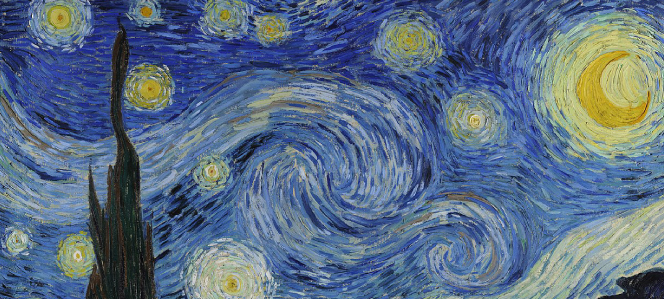The best thing about this in-between time of Winter and Spring is that the chilled air seems to break open the sky into a solemn stillness—a brightness almost brittle—and everything becomes so unusually clear up there in the heavens, so far-flung, purposed, and steady.
So much the opposite of what we may be experiencing, probably are experiencing, here below, where we remain so far away from everything that is rightly ordered, settled, and complete.
When we see the sky like that, we should grab a blanket and a warm drink and just stargaze for a little bit, as an exercise in wonder. Eventually, it becomes an exercise in humility.
On such a night, I was digesting a bit of Thomas Merton’s The Seven Storey Mountain, and one phrase that had stayed with me through evening’s pass. I was all filled up, brimming with a wonderful and rare sense of satiation by the sight of the stars and the early, wise writings of a monk.
Does the fact that we can no longer see the stars have anything to do with our loss of wonder? These things over which we have no management, the stars, and all creation—they are more splendid, perfect, beautiful, and lasting than anything man can create or even conceive.
It seemed to me in that moment that when we are more aware of milky ways and horizons, it is easier to believe. I wondered if history seems to have come to a screeching dead end—if we seem lately a society more interested in nattering endlessly about small ideas, and obsessing on overlarge resentments, than a truly visionary culture that has seen the past with enough clarity and gained wisdom to wish no repetitions—simply because we no longer have a sense of spaciousness with which to believe in something greater than ourselves. We have nothing huge before our eyes into which we can fall, and be reminded of our own littleness.
We tend to see vulnerability as a negative, and yet it is that very state that helps us learn enough about trust to envision what is big, and difficult, and worth doing. Could Joan of Arc have led her army, could she even have thought to—could she have trusted enough—without having a sense of something large beyond her comprehension also being at work? She would have seen the whole bright, clean sky before her every night, and thus made intimate acquaintance with the largeness of eternity which, so paradoxically, invited her smallness to partake of greatness.
We have obliterated the stars with our artificial light, and in so doing have blinded ourselves. Without the wonder, the greatness of the galaxies in our sight, we’ve lost the ability to believe in, or expect, miracles.
When you cannot see the glory of God’s creation, how can you wish to glorify the Lord? No longer able to easily see and affirm anything greater than ourselves, we turn inward, we worship our own thoughts, our invention, our desires.
Each generation—and perhaps my boomer generation more than any other—thinks of itself as the most enlightened, most informed, most aware; but how can that be?
We see the world through nineteen-inch computer screens, and forty-inch television screens. We melt the sand to create windows as walls, and we think that’s as big as the world gets.
We’ve narrowed our perspective—made it boxed sized and so have boxed ourselves in.
And then we blame God for not giving us miracles anymore—and we blame religion for making us desire them.
We are such fools. Merton had it more right than I had realized when he wrote:
The devil is no fool. He can get people feeling about heaven the way they ought to feel about hell. He can make them fear the means of grace the way they do not fear sin. And he does so, not by light but by obscurity, not by realities but by shadows; not by clarity and substance, but by dreams and the creatures of psychosis. And men are so poor in intellect that a few cold chills down their spine will be enough to keep them from ever finding out the truth about everything. The devil does rob us of clarity by casting us about in shadows. But he fools us into thinking that the shadows are light. Our illumination is only illusory.
And this is why we need the Eucharist. As Merton writes:
I tell you there is a power that goes forth from that Sacrament, a power of light and truth, even in to the hearts of those who have heard nothing of Him and seem to be incapable of belief. [The Eucharist is] that tremendous, secret and obvious immolation, so secret that it will never be thoroughly understood by a created intellect, and yet so obvious that its very obviousness blinds us by excess of clarity; the unbloody Sacrifice of God under the species of bread and wine.
Blinds us by excess of clarity. Yes.
The night sky is illuminated with eternity—unleashed from the shattering breath of the Creator, gas and matter scattered and strewn ever-farther, expanding even still.
Is it not the whole telling of how we are to be illuminated, broken and strewn forth, unendingly, each time we encounter the Eucharistic Christ?
The heavens proclaim the glory of God,
and the firmament shows forth the work of his hands.
Day unto day takes up the story
and night unto night makes known the message.
No speech, no word, no voice is heard
yet their span extends through all the earth,
their words to the utmost bounds of the world.
There he has placed a tent for the sun;
it comes forth like a bridegroom coming from his tent,
rejoices like a champion to run its course.
At the end of the sky is the rising of the sun;
to the furthest end of the sky is its course.
There is nothing concealed from its burning heat.
—Psalm 19:1-7
